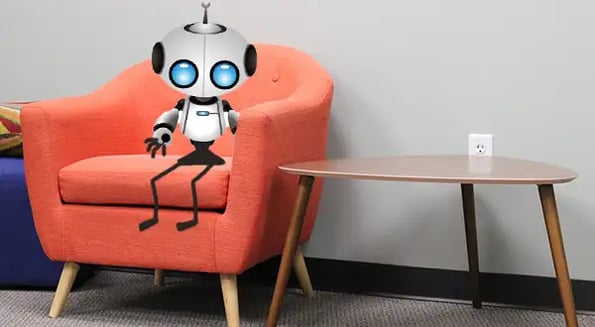If you’re worried that weeks in isolation are making your social skills rusty, there’s good news: Chatbots can’t judge you.

As US states shutter nonessential businesses, more companies are outsourcing your questions to lines of code. Chatbot companies like LivePerson and Directly have seen ~20% jumps in traffic in the past few weeks — mainly from airlines and hotels.
The company Ocelot, meanwhile, is pitching itself to colleges that have closed their campuses — because what better way to satisfy students who don’t know if their graduation will happen than to serve them a bot?
Cobot-19 will see you now
Even therapy bots are cashing in on the quarantine. Woebot, Wysa, TalkSpace, and BetterHelp are all on the up and up, according to Recode, as people sleuth out ways to manage their pandemic anxiety.
On WhatsApp, India’s MyGov Corona Helpdesk is cracking down on coronavirus misinformation. Another WhatsApp bot, Cobot-19, dishes on precautions people can take to avoid being infected.
The CDC, hospitals, and healthcare companies have tasked chatbots with running routine health checks. When you visit these websites, you enter your symptoms, and the bot spits out your level of risk for COVID-19.
The problem is, chatbots don’t give good health advice yet
A STAT writer consulted 8 different bots to screen him for coronavirus based on symptoms like cough or fever. But the answers each gave varied wildly. That’s because some bots seemed to be out of date.
All of them asked about travel to China and Iran, for instance, but some skipped over countries — like Italy and France — that are also facing major outbreaks.
In a crisis, bots aren’t ready for the limelight. With telehealth consultations becoming more available than ever, human interaction remains irreplaceable.
To reiterate: the primary early symptoms are fever, cough, and shortness of breath, no matter what a bot tells you.

